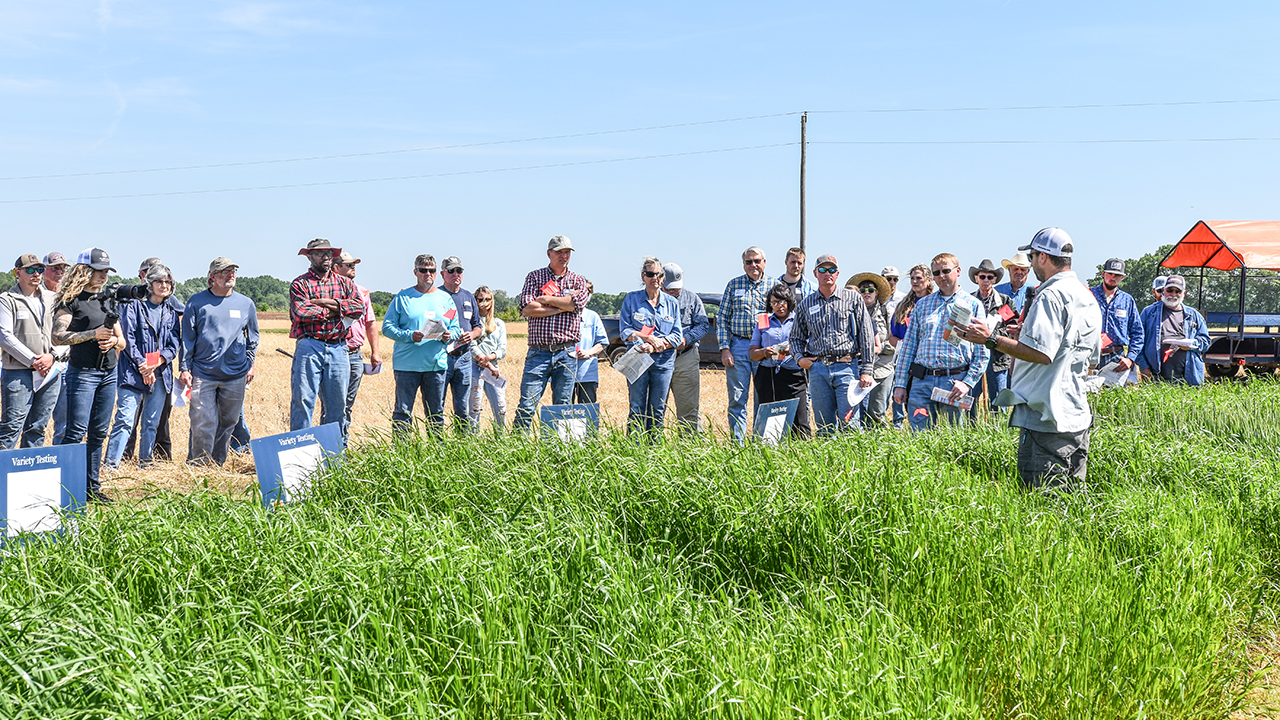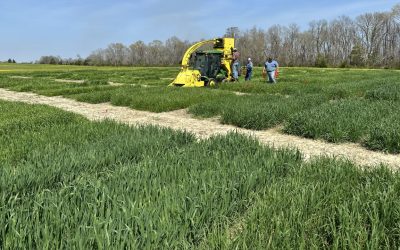Auburn University
Variety Testing Program

Variety evaluation is also critical to plant breeders, both from universities and industry. Prior to releasing a new variety, these breeders typically evaluate their lines in independent variety trials. This ensures that they have unbiased data from multiple years and locations to support the release of their new variety.
The mission of the Auburn University Variety Testing Program is to provide research-based, unbiased results on the performance of various crop hybrids, cultivars, and varieties to the agricultural community in Alabama. We are intent on conducting these trials in a manner that will result in maximum biological yield through methods common to the top-producing farms in Alabama.
We are committed to providing this information in a timely manner for its use during the decision-making process. The success of the program rests on our ability to help Alabama producers provide a safe, dependable source of food and fiber for all families as well as an economic sustainability for theirs.

Henry Jordan
Variety Testing Manager, Research Associate IV
Subscribe to AU Variety Testing Updates
Annually, the Auburn University Variety Testing Program conducts trials on corn, cotton, soybeans, peanuts, grain sorghum, wheat, barley, oats, triticale, small grain forages, and ryegrass.
Trials are conducted on Auburn University owned and operated agricultural research stations across the major geographical regions of the state. The research conducted at each of these locations can provide stakeholders with data that can be more representative of their growing conditions.
Winter Forages and Maturity, 2023-2024
Which variety(s) will transition from vegetative reproductive growth first? How long will my winter annual compete with my warm-season perennial? These are important factors to consider when overseeding a warm-season perennial pasture such as bermudagrass or...
Performance of Small Grain Forages in Alabama, 2023-2024
July 19 – Forage quality results are available from the WREC. Samples from two replications were collected, ground, and analyzed for quality. Additional locations are being processed, and results will be posted when they are available. June 27 - Results are available...
2024 Cool Season Forages Baleage Field Day
Come join us for the 2024 Baleage Production Workshop on April 11, 2024. The workshop is free and lunch will be provided. Please RSVP by April 9th to reserve lunch - Register Online Agenda 8:30 – 9:00 Registration9:00 – 9:15 Welcome & Introductions (Rickey...
Multi-State Data – New Feature Released
In 2021, the Auburn University Official Variety Testing (OVT) Program contracted with Medius Ag, a third-party agricultural data management company, to store, manage, and maintain Auburn OVT data in an online database/tool available to all stakeholders. The goal was...
2024 TVREC Barley Field Day
Researchers from the Alabama Cooperative Extension System, the Alabama Agricultural Experiment Station and Auburn University are hosting a free barley field day for growers who are interested in barley production in Alabama. This field day will include variety plot...
2024 Beef & Forage Field Days
Multiple opportunities are available to visit the Auburn University Research and Extension Centers, learn from and interact with forage specialists, and see current forage/beef cattle research in person. The dates and locations are below. Details When: March 15,...

